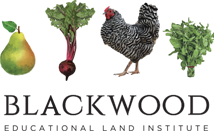We’ve all seen the label on our foods in the grocery store: “Organic.” But what does that label really mean? Organic is a term that means a given food has been produced through approved standards by the Organic Food Production Act, USDA organic regulations, and the National Organic Program Handbook.
These three standards have many specific regulations, but it boils down to: no synthetic pesticides or fertilizers, no antibiotics, no genetic engineering, and livestock must be organically fed and have access to the outdoors.
Is organic sustainable?
The debate between “organic” and “sustainable” is ongoing. Although we often speak of them as such, the two terms are not interchangeable. Organic farming must follow the above regulations, but that doesn’t always mean an organic farm is a sustainable one. Similarly, farms that do not follow organic regulations could still be sustainable and self-sufficient. (Sustainable Table)
Some similarities and differences between organic and sustainable farming:
- Certification: Organic farms require a certification approved by the USDA. Sustainable farming does not have any certification process nor a label to put on its food.
- Animal Welfare: Organic farming requires that animals have access to the outdoors, but the actual amount of outdoor space can be very little. In sustainable farming, an emphasis is put on allowing animals the space to carry out natural behaviors.
- Antibiotics: Prohibited in organic farming, antibiotics can be used in sustainable farming.
- Artificial Hormones: Neither organic nor sustainable farming use artificial hormones.
- Corporate involvement: Organic farming can range from small family farms to massive corporations. Sustainable farming typically remains smaller scale in comparison.
- Food Miles: Organic food can travel all over the world, using fossil fuels and potentially damaging the environment to reach your plate. Sustainable food is sold as close to the farm as possible. (J. R. Organics)
If you’re interested in food that is both organic and sustainable, Houston has many options available to you. You can stop by a farm weekly and pick up fresh produce at Plant it Forwards Farms, or find a nearby farm to pick your own through PickYourOwn.org. For other local resources, take a look at Houston’s own Sown & Grown, and Texas’ Wood Duck Farm, and Local Harvest.
